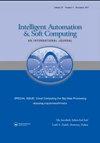Hybrid Online Model for Predicting Diabetes Mellitus
IF 2
4区 计算机科学
Q2 Computer Science
引用次数: 0
Abstract
Modern healthcare systems have become smart by synergizing the potentials of wireless sensors, the medical Internet of things, and big data science to provide better patient care while decreasing medical expenses. Large healthcare organizations generate and accumulate an incredible volume of data continuously. The already daunting volume of medical information has a massive amount of diagnostic features and logged details of patients for certain diseases such as diabetes. Diabetes mellitus has emerged as along-haul fatal disease across the globe and particularly in developing countries. Exact and early diagnosis of diabetes from big medical data is vital for the deterrence of disease and the selection of proper therapy. Traditional machine learning-based diagnosis systems have been initially established as offline (non-incremental) approaches that are trained with a pre-defined database before they can be applied to handle prediction problems. The major objective of the proposed work is to predict and classify diabetes mellitus by implementing a Hybrid Online Model for Early Detection of diabetes disease (HOMED) using machine learning algorithms. Our proposed online (incremental) diabetes diagnosis system exploits (i) an Adaptive Principal Component Analysis (APCA) technique for missing value imputation, data clustering, and feature selection; and (ii) an enhanced incremental support vector machine (ISVM) for classification. The efficiency of HOMED is estimated on different performance metrics such as accuracy, precision, specificity, sensitivity, positive predictive value, and negative predictive value. Experimental results on Pima Indian diabetes dataset (768 samples: 500 non diabetic and 268 diabetic patients) reveal that HOMED considerably increases the classification accuracy and decreases computational complexity with respect to the offline models. The proposed system can assist healthcare professionals as a decision support system.预测糖尿病的混合在线模型
现代医疗保健系统通过协同无线传感器、医疗物联网和大数据科学的潜力,在降低医疗费用的同时提供更好的患者护理,从而变得智能。大型医疗保健组织不断生成和积累大量数据。已经令人望而生畏的海量医疗信息包含了大量的诊断功能和某些疾病(如糖尿病)患者的详细记录。糖尿病已成为全球范围内的一种长期致命疾病,特别是在发展中国家。从大医疗数据中准确、早期诊断糖尿病,对于预防疾病和选择合适的治疗方法至关重要。传统的基于机器学习的诊断系统最初是作为离线(非增量)方法建立的,在应用于处理预测问题之前,需要使用预定义的数据库进行训练。提出的工作的主要目标是通过使用机器学习算法实现糖尿病疾病早期检测的混合在线模型(HOMED)来预测和分类糖尿病。我们提出的在线(增量)糖尿病诊断系统利用(i)自适应主成分分析(APCA)技术进行缺失值输入、数据聚类和特征选择;(ii)用于分类的增强增量支持向量机(ISVM)。HOMED的效率是根据不同的性能指标来评估的,如准确性、精密度、特异性、敏感性、阳性预测值和阴性预测值。在Pima印度糖尿病数据集(768个样本:500名非糖尿病患者和268名糖尿病患者)上的实验结果表明,HOMED相对于离线模型显著提高了分类精度,降低了计算复杂度。建议的系统可以帮助医疗保健专业人员作为决策支持系统。
本文章由计算机程序翻译,如有差异,请以英文原文为准。
求助全文
约1分钟内获得全文
求助全文
来源期刊

Intelligent Automation and Soft Computing
工程技术-计算机:人工智能
CiteScore
3.50
自引率
10.00%
发文量
429
审稿时长
10.8 months
期刊介绍:
An International Journal seeks to provide a common forum for the dissemination of accurate results about the world of intelligent automation, artificial intelligence, computer science, control, intelligent data science, modeling and systems engineering. It is intended that the articles published in the journal will encompass both the short and the long term effects of soft computing and other related fields such as robotics, control, computer, vision, speech recognition, pattern recognition, data mining, big data, data analytics, machine intelligence, cyber security and deep learning. It further hopes it will address the existing and emerging relationships between automation, systems engineering, system of systems engineering and soft computing. The journal will publish original and survey papers on artificial intelligence, intelligent automation and computer engineering with an emphasis on current and potential applications of soft computing. It will have a broad interest in all engineering disciplines, computer science, and related technological fields such as medicine, biology operations research, technology management, agriculture and information technology.
 求助内容:
求助内容: 应助结果提醒方式:
应助结果提醒方式:


